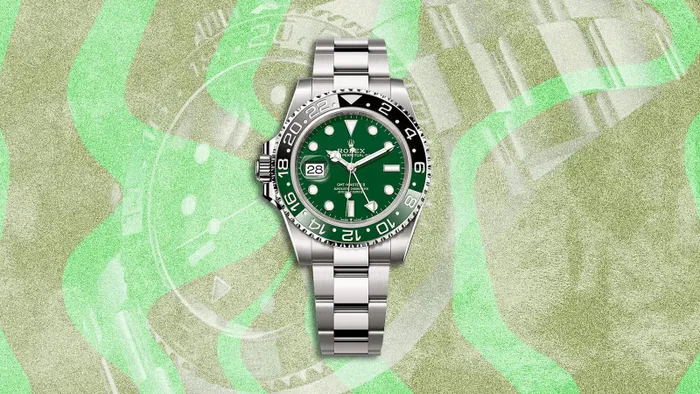Luxury watches: A smarter investment than real estate?

Luxury watches: The new gold standard in investment?
Image: GQ France - Derin Dogruoglu
Once heralded as the bedrock of secure investment, South Africa’s property market is finding itself overshadowed by a surprising contender: luxury watches.
While many South Africans continue to cling to the belief that real estate is the safest bet, an increasing wave of savvy investors are now diversifying their portfolios with timepieces, namely Rolexes, which are proving to be both fashionable and financially sound.
Michael Zahariev, co-founder of Luxity, highlights the impressive rise in the resale value of luxury watches in recent years.
“Imagine buying a Rolex today and three years later, it’s worth more than you paid for it. That’s exactly what’s happening,” he says.
Resale values have surged from 87.5% in 2021 to an astounding 104.9% in 2024.
“This means they’re not just holding their value but appreciating beyond their original retail price,” Zahariev adds, contrasting this with the reality many property owners face, where their portfolios are often losing value faster than they can manage bond repayments.
The property party is over
The once-bustling property market in South Africa is in a challenging phase.
Between 2019 and 2024, house prices have seen a meagre increase of just 4.8%.
Once inflation is taken into account, property values actually shrank in real terms by 0.59% each year.
This dwindling trend in real estate is in stark contrast to the burgeoning luxury goods market, which has witnessed a remarkable 184% surge in trading activity since 2019. Mid-range watches alone have appreciated by 28% in the last year, according to the Clur Shopping index report.
Why watches are winning
The advantages that luxury watches hold over real estate are compelling. Zahariev elucidates a few standout benefits:
- Affordable entry point: You can start building a watch collection for about R100,000, while entering the property market typically requires hundreds of thousands upfront along with bank approval battles and hidden fees.
- Quick exits: Unlike the lengthy process of selling a house—which can take three to six months—luxury watches can be sold within days through reputable dealers.
- Low upkeep: Watches require servicing maybe once a decade, whereas property ownership entails ongoing costs like taxes, insurance, and maintenance.
- Portable wealth: An entire watch collection can fit within a safe, making it far more manageable than managing real estate tied to a single location.
How to invest like a pro
However, Zahariev cautions that not every luxury watch is an automatic ticket to wealth. “Success in this space isn't about luck; it's about knowledge.
You have to understand the brands, the specific models, and what the market is looking for.” To navigate the luxury watch investment landscape, he offers these golden rules:
- Stick to the titans: Focusing on blue-chip brands like Rolex, Patek Philippe, and Audemars Piguet is crucial, with certain models (such as the Rolex "Hulk" Submariner or Patek Philippe Nautilus) standing out as top collectors’ items.
- Think in years, not months: For true appreciation, intend to hold onto your piece for at least three to five years.
- Authenticity is everything: With a market flooded with fakes, always procure watches from reputable dealers who can provide authentication. Your watch’s provenance plays a significant role in its value.
Looking ahead
As inflation stabilises at 3.5% and interest rates show signs of normalisation, both real estate and luxury timepieces vie for investor interest.
Zahariev encapsulates the sentiment by noting, “We're not suggesting people abandon property investment, but for portfolio diversification, luxury watches provide attractive returns with significantly lower barriers to entry.”
BUSINESS REPORT